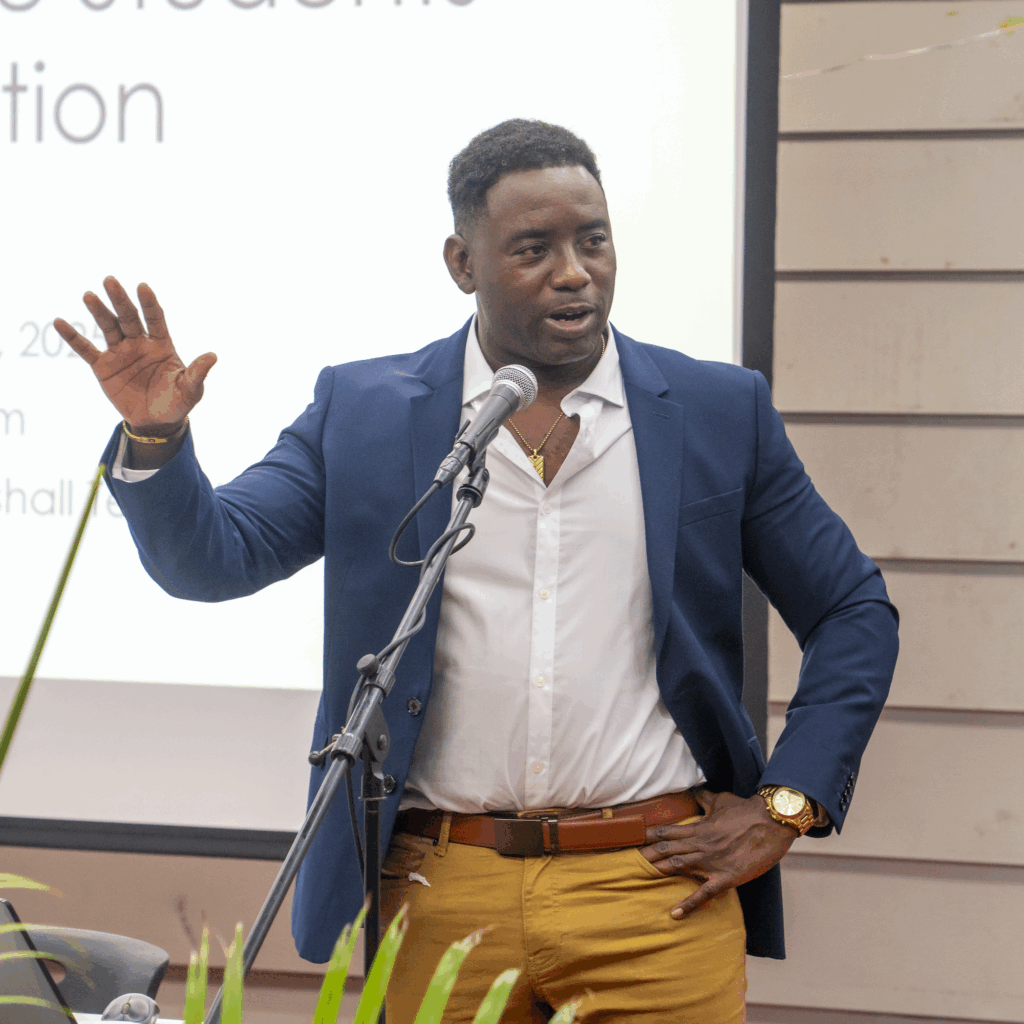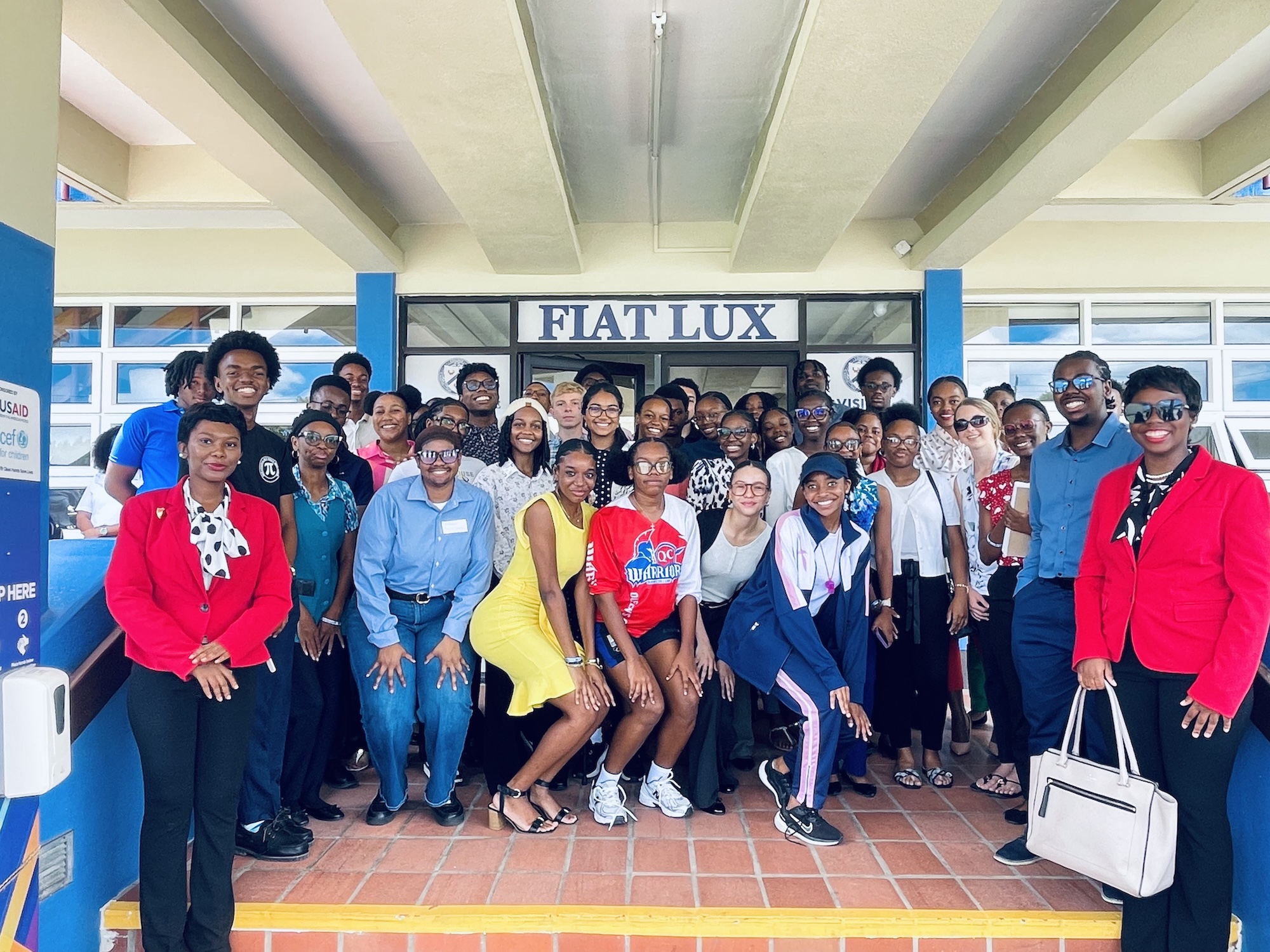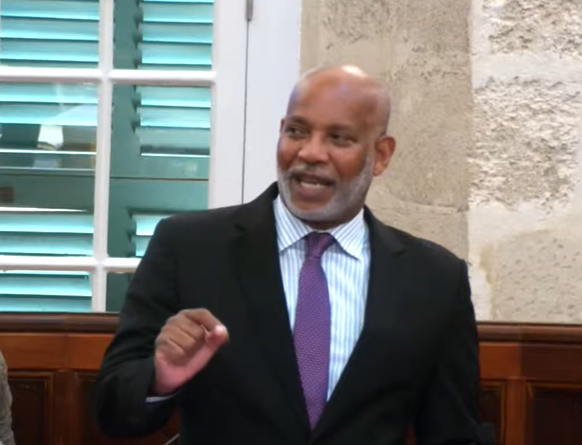The Government of Barbados has announced plans to expand freedom of movement within the Caribbean Community (CARICOM) by opening its borders to at least three additional states, including two from the Organisation of Eastern Caribbean States (OECS) and Belize. While this move is framed as a step toward regional integration, it has sparked significant criticism among Barbadians who feel it is ill-timed given the country’s pressing domestic challenges. Barbados is grappling with a soaring cost of living, stagnant wages, and overstretched public services. Many citizens argue that prioritizing border expansion before addressing these issues raises concerns about whose interests are truly being served. The potential influx of migrants, whether immediate or gradual, could exacerbate existing economic and social pressures. Critics liken the move to pouring water into a leaking bucket, emphasizing that it may worsen rather than alleviate the country’s problems. Unemployment and underemployment, particularly among the youth, remain high, and opening the labor market to more competition could further depress wages. Additionally, long healthcare wait times, scarce affordable housing, and inadequate schools and transportation systems are already straining the population. The Barbados Consumer Empowerment Network (BCEN) has expressed support for regional integration but insists it must be fair, reciprocal, and sustainable. They urge the government to focus on stabilizing the economy, reducing living costs, and improving public services before pursuing symbolic gestures of integration. BCEN emphasizes that leadership should be measured by how well it cares for its people, not by how quickly it opens its borders.
标签: Barbados
巴巴多斯
-

Minister reaffirms Caribbean tourism as a pillar of peace and identity
Ian Gooding-Edghill, Minister of Tourism, has reiterated the critical importance of preserving the Caribbean’s globally celebrated tourism brand. Speaking at the opening of the State of the Tourism Industry Conference (SOTIC) 2025 on October 1, his remarks come against a backdrop of escalating tensions in the southern Caribbean involving Guyana and Trinidad and Tobago. These nations have become entangled in a broader geopolitical conflict between the United States and Venezuela. The U.S. has intensified its campaign against drug trafficking networks allegedly linked to Venezuela’s government, particularly the Cartel de los Soles, which Washington claims is supported by high-ranking Venezuelan officials loyal to President Nicolás Maduro. With Maduro resisting U.S. pressure and American warships patrolling Caribbean waters, the region’s longstanding reputation as a peaceful haven is under threat. Gooding-Edghill echoed Prime Minister Mia Mottley’s recent address at the UN General Assembly, emphasizing the Caribbean’s identity as a zone of peace—a cornerstone of its tourism appeal. He stressed that maintaining this peaceful image is vital for nations like Barbados, where tourism is a primary economic driver. The minister highlighted the need to market the Caribbean as a sanctuary of safety and stability, offering visitors not just a vacation but an escape from global instability. Additionally, he advocated for leveraging cultural figures as soft power to amplify the Caribbean brand globally. He argued that the region’s sports heroes, musicians, and artists should serve as ambassadors, sharing authentic narratives that resonate internationally. Gooding-Edghill also underscored tourism’s deeper role in shaping Caribbean identity, describing it as the lifeblood of the region’s culture, creativity, and connection to the world. Reimagining tourism, he concluded, is synonymous with reimagining the Caribbean’s future.
-

Beyond right answers: Raising well-rounded children together
Barbados is currently undergoing a significant transformation in its education system, a shift that is both exhilarating and unsettling for parents and families. Change, especially when it concerns children, often evokes a sense of uncertainty. While some aspects of this transformation are welcomed, others are met with skepticism. However, the key lies in how we respond and guide our children to make the most of these changes. One of the most notable changes is the adoption of project-based learning, which moves away from traditional rote memorization and encourages students to delve into real-world problems, explore creative solutions, and demonstrate their understanding in meaningful ways. This approach not only prepares students for exams but also for life. Additionally, play-based learning has been introduced in early education, fostering curiosity and imagination. The challenge now is to maintain this spirit throughout the entire education system. As children progress, the focus often shifts to achieving the ‘right answer,’ which can stifle curiosity and creativity. The future will present complex problems without clear-cut solutions, making it essential to teach content while avoiding the trap of valuing only correct answers. Parents play a crucial role in this transformation. While it is natural to desire academic success for their children, it is important to recognize that true achievement is driven by curiosity, persistence, and the courage to try. The rise of AI and technology presents both opportunities and challenges. While these tools can enhance access to information and creativity, they also risk diminishing children’s ability to think independently and process deeply. Teachers are grappling with how to make assessments more authentic, ensuring they measure actual understanding rather than computer-generated responses. The home environment is vital in sustaining curiosity. Research indicates that many children lose their natural curiosity around age seven due to systems that reward only correct answers. Parents can counteract this by encouraging questions, engaging in thoughtful dialogue, and supporting home projects that allow children to lead and solve problems. By fostering curiosity, resilience, and empathy, Barbados aims to develop not just better students but better individuals. This transformation may be daunting, but the ultimate goal is to create self-sufficient, fully functional, and thinking human beings. Dr. Zhané Bridgeman-Maxwell, a science educator and researcher, is at the forefront of this movement, advocating for policy shifts and pedagogical innovation to redefine education in Barbados.
-

Bayville community in shock after shooting
A tranquil morning in Bayville turned into a scene of chaos and fear when a local taxi driver, identified by neighbors as Andrew, was shot during an attempted robbery on Thursday. The incident, which occurred in front of his young child, has left the community in shock and questioning their long-held sense of security. Andrew was washing his taxi van when an assailant approached and shot him, marking the first violent crime of this nature in the area in over five decades. A nearby resident, who has lived in Bayville for more than 50 years, expressed disbelief, stating, “We have never had anything like that in this area, never. I am 53 and I have never heard of anything like this here.” She described Andrew as a kind and helpful man, always willing to assist others, often with the help of his children. Another neighbor echoed these sentiments, calling Andrew a “very nice fella” and expressing deep sadness over the incident. The shooting has also raised concerns about the behavior of some young people in the community, with one local worker noting, “They have a lot of young people in the area, and the majority of them, some of them are disrespectful to other people.” The victim is currently in stable condition at the Queen Elizabeth Hospital, and authorities are investigating the incident. This event has not only shattered the peace of Bayville but also highlighted the growing need for community vigilance and youth engagement to prevent such tragedies in the future.
-

Barbadian banker among six appointed after CIBC Caribbean training
CIBC Caribbean has recently appointed six young professionals to pivotal frontline banking roles across the region, marking a significant step in nurturing the next generation of financial leaders. Among the appointees is Shamar Shorey from Barbados, who has joined the Platinum Banking team as a relationship manager. These appointments follow the successful completion of the bank’s Chief Commercial Office (CCO) Immersion Programme, an 18-month intensive initiative designed to attract and develop top talent for CIBC Caribbean’s Corporate and Personal and Business Banking segments. The programme combines hands-on experience, mentorship, and exposure to critical areas of the bank’s operations, equipping participants with the skills necessary for frontline roles. Graduates are offered permanent positions upon completion, reinforcing the bank’s commitment to fostering long-term careers. Pim van der Burg, Chief Commercial Officer, highlighted that the programme challenges the misconception that young professionals are unwilling to commit to the demanding nature of financial services. He urged the new appointees to view themselves not just as bank representatives but as trusted partners to their clients, emphasizing the importance of dedication and resilience in modern banking. The graduation ceremony, held simultaneously via video conference across five Caribbean countries, underscored the bank’s reliance on technology to enhance its operations and connectivity. The new appointees include Andreen Mitchell from Jamaica, Christina Rammanth from Trinidad, Kara Daville from the Bahamas, Shaun Morgan from the Cayman Islands, and Kimani Nugent from Jamaica, each taking on roles in Personal and Business Banking or Corporate Banking teams. Shorey shared his transformative journey, from learning to write small credits to managing multi-million-dollar projects, and expressed his appreciation for the interconnectedness of the bank’s departments. Janine Billy, Chief Human Resources Officer, emphasized the programme’s role in future-proofing the bank by creating a modern, community-driven organization that balances technology, innovation, and efficiency with the right talent. Jeffrey Newton, Director of Credit Underwriting and Portfolio Management, reminded graduates that banking is built on trust, accountability, and client service, urging them to prioritize clients in every decision. This cohort of the CCO Immersion Programme began in March 2024 and concluded in August 2025, marking a new chapter for both the graduates and CIBC Caribbean.
-

Difficult to see the brighter side of WI cricket but we must
West Indies cricket, once a symbol of regional pride and global dominance, is now grappling with a profound crisis. Recent disclosures by Chris Dehring, CEO of Cricket West Indies (CWI), have shed light on the financial struggles and tough decisions confronting the sport in the region. Among the most significant moves is the exclusion of developmental teams—Combined Campuses and Colleges (CCC) and the West Indies Academy—from upcoming professional tournaments, including the 2025 CG United Super50 and the 2026 four-day first-class competition. These teams have historically served as vital platforms for nurturing young talent, making their removal a painful yet necessary step in light of financial constraints. Dehring’s candid remarks during a press conference in Antigua underscored the precarious financial state of CWI. Despite a revenue boost from hosting the 2024 ICC Men’s T20 World Cup, the board’s income remains insufficient to sustain long-term development. The financial model, heavily reliant on lucrative tours by cricketing powerhouses like India and England, leaves little room for profitability from tours by other nations. In 2025, West Indies will host Sri Lanka, New Zealand, and Pakistan—tours that are unlikely to generate substantial revenue from broadcast rights or ticket sales. Yet, these fixtures are non-negotiable under the ICC’s Future Tours Programme. The financial strain has also led to a reduction in tournaments. The upcoming CG United Super50 will feature only six teams, a stark contrast to previous editions that included developmental squads. Dehring emphasized the need for a long-term vision aligned with the board’s financial realities. However, the challenges extend beyond finances. West Indies cricket is plagued by deeper structural issues, including inconsistent governance, legal disputes between players and the board, underinvestment in grassroots development, and a fragmented domestic system. The region’s unique diversity, while a strength, complicates efforts to unify six territories under a single cricketing umbrella. The evolving global cricketing landscape further compounds these challenges. Revenue streams now hinge on broadcast rights, sponsorships, and commercial partnerships, with sponsors demanding competitive results to enhance their brands. To remain relevant, West Indies cricket must adapt swiftly, reducing its reliance on big tours and embracing innovative strategies to boost revenue. The path forward demands collective action from CWI, regional governments, sponsors, and fans. Greater financial transparency, innovative revenue-raising measures, and a commitment to on-field competitiveness are essential. The cricketing community’s enduring passion is being tested, with fans questioning the dedication of both players and the board. West Indies cricket stands at a critical juncture, requiring honesty, vision, and decisive action to reclaim its legacy. While the challenges are daunting, the hope for resurgence remains alive. Embracing change and rallying behind this mission will be crucial to restoring West Indies cricket to its former glory.
-

Youth signals outside court spark concern
Barbados is grappling with a surge in gang-related activities, as young men charged with violent offenses openly display apparent gang signs outside courtrooms. This alarming trend has heightened public concern and underscored the growing influence of gang culture amidst the nation’s ongoing struggle to curb street violence. The situation has prompted urgent calls from sociologists for deeper research and targeted interventions to address the root causes of youth involvement in gangs. Dr. Dwayne Devonish, Professor of Management and Organisational Behaviour at the University of the West Indies (UWI) Cave Hill, emphasized the need for comprehensive studies to understand the factors driving gang affiliation. According to Dr. Devonish, the Criminal Justice Research and Planning Unit identified six dominant gangs across 50 local neighborhoods in Barbados, with membership ranging from 15 to 50 individuals, typically aged 17 to 40. While he cautioned against assuming all individuals displaying gang signs are active members, he acknowledged the cultural significance of such gestures. Dr. Devonish highlighted the critical role of schools, which have increasingly become recruitment grounds for gangs, and stressed the importance of vigilance from law enforcement and state agencies. He also pointed out a troubling trend where gang affiliation is now seen as a badge of honor among young Barbadians, signaling loyalty and toughness. This normalization of criminality, coupled with declining public confidence in law enforcement, poses a significant challenge that requires immediate and focused action to reverse.
-

Queen’s College week blends tradition with fun for Class of 2026
For students, alumni, and staff of Queen’s College (QC), QC Week transcends a mere schedule of events. It is a profound blend of pride, nostalgia, and joy, culminating in a heartfelt farewell for the Class of 2026 as they prepare to etch their names into the school’s illustrious 142-year history. The week-long celebration commenced at St. Augustine Anglican Church in St. George, where Reverend Yolanda Clarke delivered an inspiring sermon. The resonant school song underscored the deep connection among alumni, staff, parents, and students, setting the tone for the festivities. The spirit of unity continued during Monday’s joint assembly in the school hall, where attorney Kamisha Benjamin urged students to seize opportunities and craft their own narratives of excellence. One of the week’s highlights was the role-reversal event orchestrated by the graduating class. Teachers donned student attire while students assumed the role of educators, infusing the school with laughter and creativity. This activity symbolized the seniors’ desire to leave a lasting mark of ingenuity and pride as they bid farewell to their alma mater. Sharon Callender, a staff representative on the QCA Committee, remarked, “This graduating class organized themselves to swap places with the teachers, creating a memorable and lighthearted experience.” The celebrations continued with “I Love QC Day!” on Friday, encouraging students and alumni worldwide to proudly display their QC colors, ties, and wristbands. The week concluded with a karaoke lime at Pelican Village on Saturday and a luncheon at Coconut Court Hotel on Sunday. For the Class of 2026, QC Week was a poignant farewell, filled with pride, cherished memories, and the assurance that they are part of a legacy that continues to shine brightly.
-

Marshall: Downgrade based on US law, not global measures
Barbados is formulating a comprehensive action plan to address the United States’ decision to downgrade its human trafficking efforts, Attorney General Dale Marshall announced on Thursday. This comes in response to the US State Department’s criticism that the island nation failed to prosecute trafficking cases or assist victims for the third consecutive year. The downgrade, which moved Barbados from Tier 2 to the Tier 2 Watch List in the 2025 Trafficking in Persons (TIP) Report, has prompted Bridgetown to intensify its efforts to reverse the decision. Marshall expressed confidence that the proposed measures would persuade the US to reconsider its assessment. He emphasized that the downgrade was based on US domestic law, specifically the Trafficking Victims Protection Act, rather than international standards. Marshall defended Barbados’ commitment to combating human trafficking, stating that the government takes the issue ‘very seriously’ and has redoubled its efforts in recent years. However, he acknowledged that the number of trafficking cases in Barbados is relatively low, which influences the scale of the response. The Attorney General also rejected Washington’s recommendation to establish specialized courts for trafficking cases, citing feasibility concerns. Barbados has previously been on the Tier 2 Watch List between 2011-2013 and 2019-2021. The TIP Report highlighted several shortcomings, including the absence of trafficking investigations, prosecutions, or victim assistance during the reporting period. While the government has conducted public awareness campaigns and screened vulnerable populations, these efforts were deemed insufficient to maintain its Tier 2 status. The US also criticized provisions in Barbados’ Trafficking in Persons Prevention Act that allow fines instead of imprisonment for sex trafficking, arguing that such penalties undermine the severity of the offense. Systemic issues, such as limited resources, court backlogs, and the prioritization of other crimes by law enforcement, were also cited as contributing factors. Despite these challenges, Barbados remains determined to address the concerns and improve its standing in future TIP reports.
-

CariGenetics and Bayview Laboratory Partner to Launch Genetic Testing in Barbados
Bayview Laboratory has forged a groundbreaking alliance with CariGenetics, a Bermuda-based genetics firm, to enhance access to genetic testing services in Barbados. This partnership heralds a new chapter in personalized healthcare for the island, enabling residents to make informed decisions about their health and wellness. The collaboration introduces a comprehensive suite of genetic tests, encompassing paternity, familial, and ancestry analysis, alongside insights into nutrition, fitness, skincare, personality traits, medication efficacy, and health risks. Notably, Barbadians will gain access to the region’s inaugural gut microbiome analysis kit, with self-collection kits soon available at Bayview Laboratory and select pharmacies island-wide. Dr. Lyndon Waterman, Lab Director, emphasized the transformative potential of these services, stating, ‘Your DNA holds the key to understanding optimal nutrition, fitness routines, skincare regimens, and even disease predispositions and medication responses.’ Bayview Laboratory’s recent expansion of its testing menu, which now includes cholesterol, HbA1C, and liver and kidney function tests, underscores its commitment to advancing community health. The partnership also aligns with CariGenetics’ mission to address the underrepresentation of Caribbean genetic data in global genomic research. Dr. Carika Weldon, Founder & CEO of CariGenetics, highlighted the broader implications of this disparity, noting, ‘The lack of diverse genomic data, particularly from the Caribbean, results in less effective treatments and inequitable healthcare outcomes. Most medical research is based on European DNA, which represents only 15% of the global population.’ Together, Bayview Laboratory and CariGenetics are not only democratizing access to advanced genetic tests but also establishing a secure, anonymous genomic database to fill critical gaps in global research. This initiative positions Barbados and the wider Caribbean at the forefront of personalized, data-driven healthcare, marking a significant milestone for the region.
